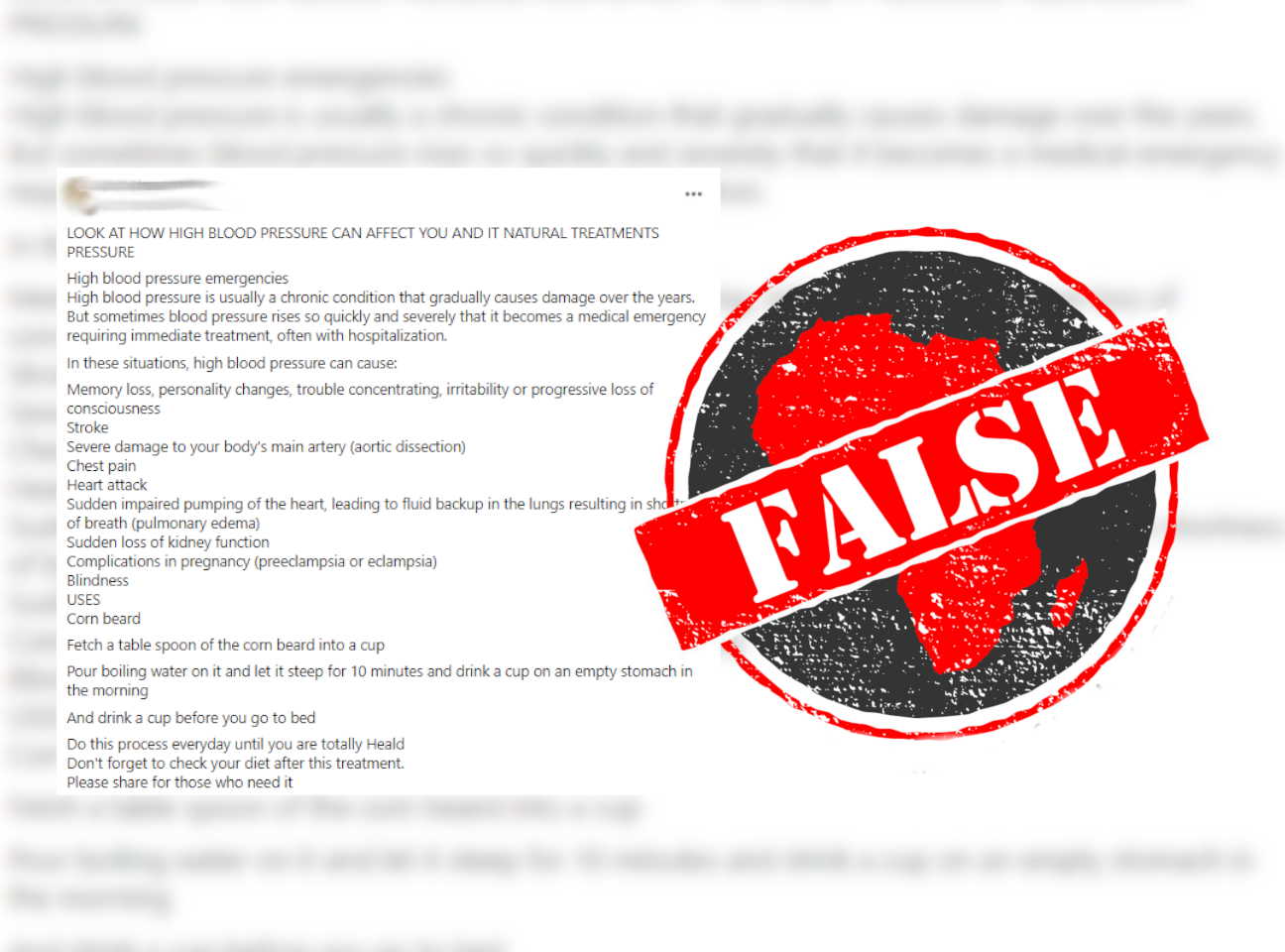“Look at how high blood pressure can affect you and its natural treatment," reads the headline of a Facebook post shared in Nigeria.
According to the July 2021 post, drinking water infused with the thread-like strands around corn, also known as maize, is a cure for high blood pressure.
"Drink a cup on an empty stomach in the morning and drink a cup before you go to bed. Do this process everyday until you are totally healed. Don't forget to check your diet after this treatment," the post reads in part.
We debunked a very similar claim in September 2020. Then medical experts told us the idea that the treatment could cure diabetes, high blood pressure and high cholesterol was “frivolous” and should be ignored.
Has this advice changed?

‘Such claims have not been scientifically proven’
The healthcare division of Johns Hopkins University in the US says high blood pressure or hypertension is when blood moves more forcefully through the arteries than it should.
“The resulting health problems from high blood pressure can include heart disease, heart failure, stroke, kidney damage, vision loss, and memory loss and cognitive decline,” says Johns Hopkins.
Exercise, a diet change and weight loss for overweight people are some of the recommended ways of managing high blood pressure.
"There are plants that are said to have antihypertensive abilities but it has not been investigated or scientifically proven," Ghasi Samuel, a professor of pharmacology at the University of Nigeria in Enugu, southeastern Nigeria, told Africa Check.
He also urged people to disregard the claim and visit a doctor who would help them manage the condition.
Posts advertising cures for health conditions, not orthodox medicine, are common on social media. Africa Check has checked many of these claims and time and again experts have advised people not to try unproven treatments.
Republish our content for free
For publishers: what to do if your post is rated false
A fact-checker has rated your Facebook or Instagram post as “false”, “altered”, “partly false” or “missing context”. This could have serious consequences. What do you do?
Click on our guide for the steps you should follow.
Publishers guideAfrica Check teams up with Facebook
Africa Check is a partner in Meta's third-party fact-checking programme to help stop the spread of false information on social media.
The content we rate as “false” will be downgraded on Facebook and Instagram. This means fewer people will see it.
You can also help identify false information on Facebook. This guide explains how.


Add new comment